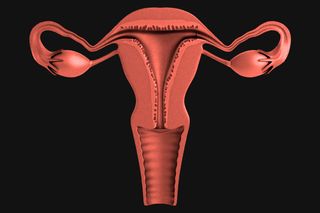
What’s The Difference Between IUI, IVF and ICSI?
Your guide to assisted reproduction options.

The decision to seek reproductive assistance can be a difficult one, and often one taken when couples are at their wits’ end trying to conceive. The complicated names and jargon around fertility treatments doesn’t help the experience. Here, we break down the various options for assisted reproduction, and why your fertility specialist might advise one over the other.
What is IUI?
Intrauterine insemination, or IUI, basically just gives sperm a little more assistance in getting to an egg than it would through sexual intercourse. It’s typically recommended for couples who have had difficulty conceiving, but no structural or serious infertility problem; alternatively, it might be recommended for couples who require donor sperm. Typically, women do not need to take hormones (though it may be recommended for women with irregular menstrual — and thus, ovulation — cycles). Instead, a semen sample is collected from the male partner or donor, and is inserted into the woman’s uterus at peak ovulation. Fertilization of the naturally released egg occurs within the female partner’s, or surrogate’s, uterus.
Pros: Often the first recommended procedure for couples; less physically demanding than IVF; cheaper.
Cons: If you’re using hormones to regulate ovulation, you might face a higher risk of multiples.
What is IVF?
In-vitro fertilization, or IVF, has been used as a catch-all for all assisted reproduction treatments, but it’s actually a unique procedure aimed to help women with structural obstacles to fertility (for instance, damaged Fallopian tubes) or other fertility problems, like low egg counts; it may also be recommended for mild cases of male fertility problems; for couples working with a surrogate; for couples who have already undergone several unsuccessful rounds of IUI; and for couples who require genetic screening. It involves a woman first taking hormones to stimulate her ovaries’ production of eggs. Then, a specialist will collect the egg(s), along with a semen sample from the partner or donor. The egg(s) and sperm will be placed in the same laboratory dish until a sperm fertilizes the egg, and the resulting embryo(s) will be transferred into the uterus of the female partner or surrogate.
Pros: Because IVF involves actually fertilizing an egg and ensuring a viable embryo, it’s typically thought of as the procedure that offers the best chance of pregnancy.
Cons: The hormones that women undergoing IVF must take can cause side effects ranging from the mild/irritating (mild cramping, breast tenderness, mood swings) to the serious (ovarian stimulation syndrome); more expensive than IUI.
What is ICSI?
Intracytoplasmic sperm injection, or ICSI, is a more targeted method of IVF aimed at helping men who have fertility problems, such as low sperm count or poor sperm mobility. The same general procedure is followed, but instead of placing egg(s) and sperm in the same laboratory dish and waiting for fertilization, a single, healthy sperm cell will be extracted from the man’s semen sample and directly inserted, in the lab, into the egg to fertilize it. The embryo is them transferred into the female partner or surrogate’s uterus.
Pros and cons: Similar to IVF.
Related


Study of 20,000 Kids Finds Asthma Ups Risk of Childhood Obesity
